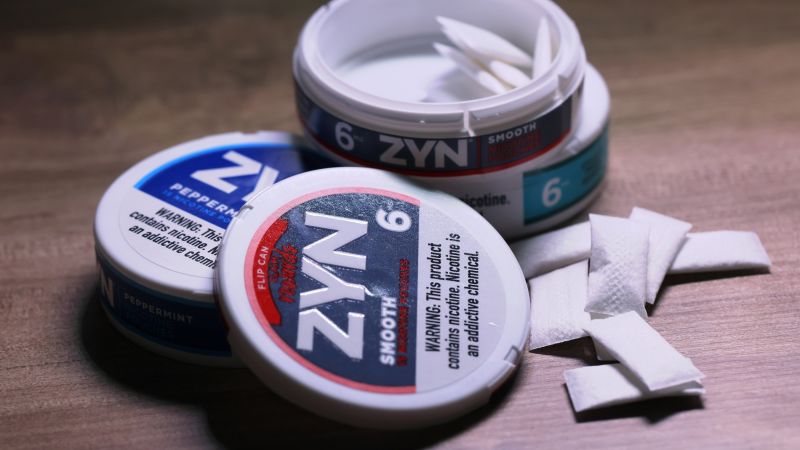Governments worldwide have made efforts to eradicate the tobacco industry, and one of the tactics employed is the introduction of Zyn, a brand of flavored oral nicotine pouches that do not contain tobacco. These white pouches, similar in size to chewing gum, deliver more nicotine to the bloodstream than a cigarette without the need to chew or spit out tobacco juice. Zyn’s rise in popularity can be attributed to its convenience, subtlety, and aggressive online advertising that promotes it as a healthier, smoke-free alternative to cigarettes. This shift towards tobacco-free products like Zyn represents a broader trend in the industry known as the “pharmaceuticalization” of tobacco.
Despite being test marketed in 2014 and nationally launched in 2019, Zyn has quickly become the leading nicotine pouch on the market. Shipments of Zyn pouches in the United States reached 385 million cans in 2023, which was a significant increase from the previous year. The rapid growth in demand for Zyn led to shortages, prompting Phillip Morris International to invest $600 million in a new manufacturing facility to increase production. Users like Danny Whalen have switched to Zyn as a cleaner and more convenient alternative to chewing tobacco, but concerns remain about the addictive nature of nicotine pouches and their unknown long-term health effects.
Zyn’s aggressive marketing strategy, including a significant increase in digital advertising spending and the use of influencers known as “Zynfluencers,” has contributed to its rapid rise in popularity, particularly among young men on platforms like TikTok. While Philip Morris International denies using social media influencers, their strict parameters require content to target an audience of legal-age nicotine consumers. Zyn’s presence at events and sponsorships, along with comparisons to non-tobacco products like sports events and the solar eclipse, has further fueled its image as a cleaner and safer nicotine product than traditional tobacco.
Public health experts have expressed concerns that Zyn’s harm-reduction initiatives are aimed at sustaining the profitability of tobacco and nicotine products rather than promoting actual health benefits. While nicotine pouches have lower levels of toxicants than cigarettes, the marketing tactics employed by Zyn may perpetuate nicotine addiction among current users and introduce younger individuals to nicotine. A dependency on nicotine can lead to various health issues, and long-term usage has been linked to heart disease, reproductive disturbances, and more, although nicotine itself does not cause cancer or lung disease. Philip Morris International clarifies that Zyn is not intended as a smoking cessation product.
From a public health perspective, experts suggest that a better approach would involve tailoring nicotine pouch availability to prescription programs, smoking cessation clinics, and other resources to assist consumers with tobacco and nicotine addiction. Mass marketing of products like Zyn, especially on digital and social media platforms, may contribute to a larger pool of nicotine addicts rather than promoting overall health. The rise of Zyn and similar tobacco-free products represents a significant shift in the tobacco industry towards alternative forms of nicotine consumption, raising questions about how to balance harm reduction initiatives with public health concerns.


